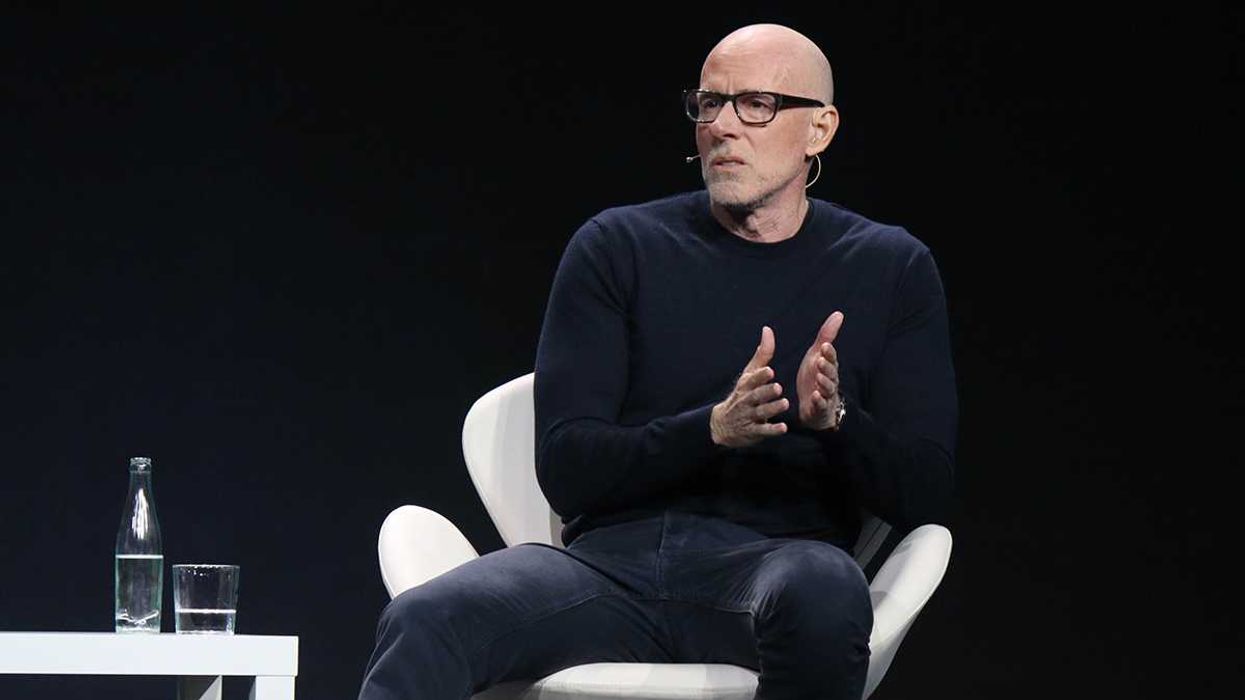Amidst Trump’s missile launches and nonstop Twitter firestorms, an equally consequential political drama is currently brewing in France. French citizens are about to elect a new president by way of a two-round voting system, which means the options are whittled down to the top two candidates if no one candidate manages to secure a clear majority in the first round. On Sunday, the first round of votes put independent centrist Emmanuel Macron in the top spot with nearly 24 percent of the vote, while the far-right candidate, Marine Le Pen, came in a close second with 21.4 percent of the vote, CNN reports.
French citizens will have until May 7 to vote for either Macron or Le Pen, and depending on whom they choose, the impacts could be far-reaching. As the leader of the far-right National Front party, 48-year-old Le Pen promotes nationalistic and isolationist policies (sound familiar?). On the flip side, 39-year-old Emmanuel Macron is the youngest candidate out of the original 11 vying for the presidency and is a perfect foil to Le Pen with his independent, socially liberal values. Here are three ways we can expect the world to change after the final vote.
‘Frexit’
Should Le Pen secure a presidential win and follow through on her proposal to leave the European Union, it could be Brexit all over again, only this time the French will get to decide how to deal with the mess of abandoning the euro. According to a study by Institut Montaigne, a “Frexit” scenario could end up costing the country an estimated $190 billion. And as Fortune explained, reintroducing the franc as French currency could spur the exchange rate to drop by 20 percent, cause higher interest rates, and endanger hundreds of thousands of jobs.
CNBC puts it this way:
“There is no ‘orderly exit’ from the euro. It is an oxymoron. This would be the largest credit event in history and would create a massive contagion effect throughout the euro zone. The euro, obviously, would suffer from the break-up risk, so the fallacy of the ‘closely linked’ second currency is simply a joke. Both would collapse in tandem.”
Immigration
In line with her proposed “Frexit” referendum, Le Pen has been vocal about her desire to tighten France’s borders. According to CNN, she hopes to “reinstate France's borders” by cutting yearly legal immigration down from 200,000 to 10,000 at most, and she plans on limiting immigrant access to public services. While at a rally in Paris last week, she said, “I will set up a moratorium on all legal immigration to stop this delirium, this uncontrolled situation,” adding that “mass immigration is not an opportunity for France, it's a tragedy for France.”
Her similarities to Trump’s anti-immigration rhetoric have not gone unnoticed. “With her fierce anti-immigration agenda and her vow to keep France for the French, she could be a Gallic counterpart to Trump,” The Washington Post reports, adding that a Le Pen win could accelerate the burgeoning fight against globalization. Macron, on the other hand, opposes such restrictions and plans on keeping the EU’s borders open.
Culture
Much like the U.S. presidential election, the contest in France has revealed a stark ideological rift. On the one hand, you have Macron, a candidate who supports open borders, globalization, freedom of religion, and tolerance. On the other, you have Le Pen, who has aligned herself with bigoted, anti-Muslim messages, has strong nationalistic views, and has a tendency to incite fear. As the The Guardian sees it, “The contest on 7 May is a contest between openness and bigotry, internationalism and nationalism, optimism and hatred, reaction and reform, hope and fear.” Whoever wins this election will not only lead France in becoming more open or closed off, but will lead the rest of the world. French voters would be wise to do their homework before casting ballots next week—if not for themselves, then for the sake of the global political climate.
















 Otis knew before they did.
Otis knew before they did.